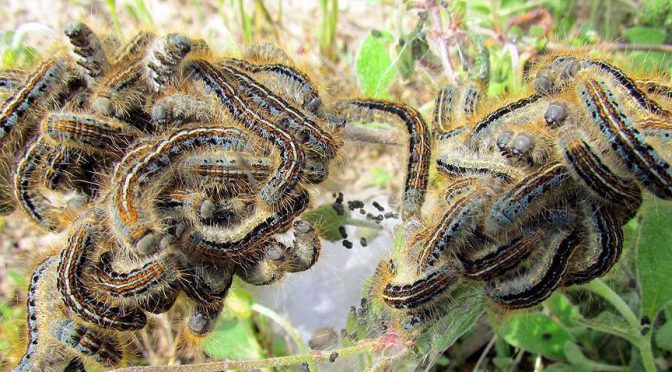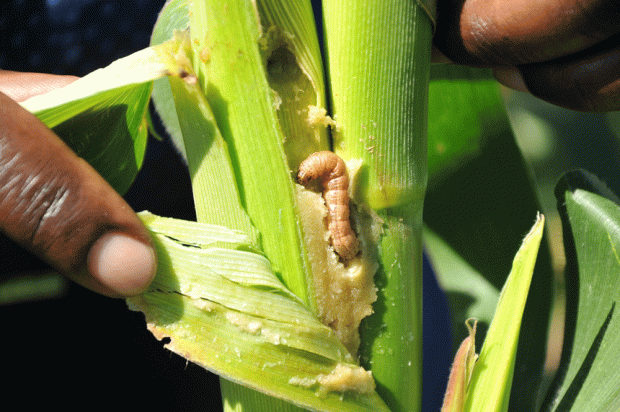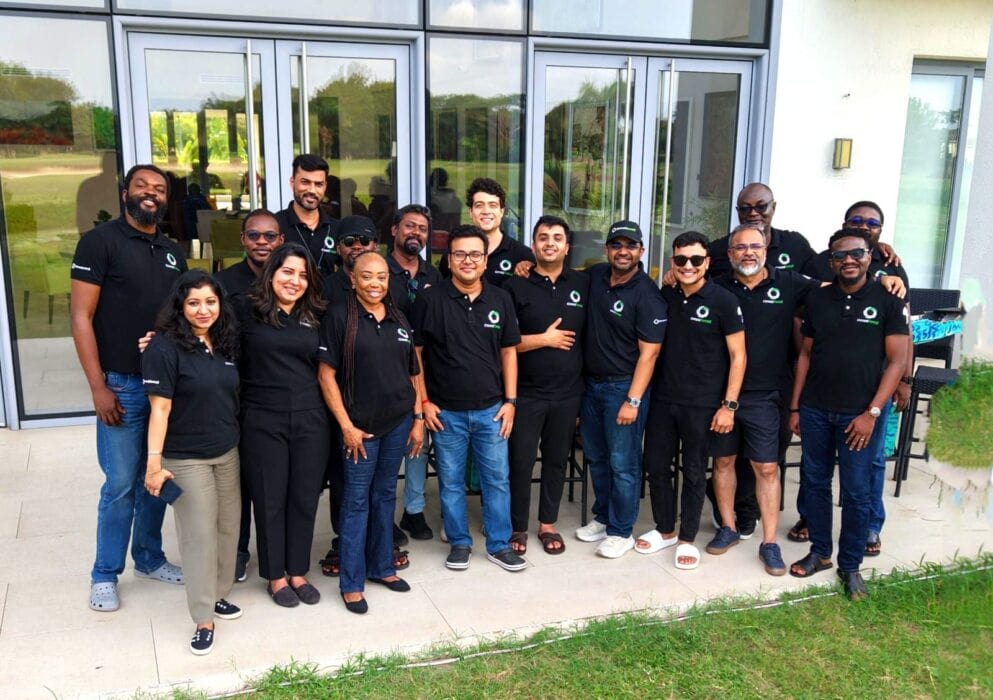

Fall Armyworm Tech Prize: Can You Kill a Parasite, Using Tech for $400,000?
The Fall Armyworm Tech Prize seeks digital tools and approaches that provide timely, context-specific information that enable smallholder farmers and those who support them to identify, treat, and track incidence of fall armyworm in Africa.
Fall Armyworm (FAW) poses a serious threat to food security in sub-Saharan Africa. Originally from the Americas, FAW outbreaks first occurred in West Africa in early 2016 and are now on the precipice of devastating food supplies across the continent, exacerbating global poverty and hunger. FAW attacks more than 80 different plant species and agriculture experts estimate the pest may cause over $13 billion in losses for crops like maize, sorghum, rice, and sugarcane. It can also fly up to 1,600 kilometers (nearly 1,000 miles) in 30 hours meaning it can easily migrate to surrounding farms and countries.
Given the spread and rate of the outbreak, interventions are needed at a transnational level. Information on how to respond and prevent the pest needs to quickly be transmitted to smallholder farmers and those who advise them.
Suggested Read: Fall Armyworm Invasion in Kenya, Uganda
As such, the Armyworm Tech Prize is open to solutions from individuals, groups, organisations and companies globally, particularly local innovators from sub-Saharan Africa.
As part of USAID’s ongoing commitment to Gender Equality and Women’s Empowerment, we particularly encourage competing teams that involve women in all steps of your tool or approach’s formulation, management, and execution.
The prize seeks solutions that:
- Enable smallholder farmers and those who support them to accurately identify incidence of fall armyworm in their crops.
- Produce timely, context appropriate, and empowering insights for smallholder farmers to treat the incidence of fall armyworm.
- Reduce productivity losses caused by fall armyworm among those using the tool or approach.
- Ensure the appropriate and responsible use of pest management assessments, tools, and interventions.
Eligibility
- Local Applicability: though the call is global and solvers can come from all over the world, the solutions will be tested and applied in field contexts in sub-Saharan Africa.
Willingness to Share Learning: All entrants need to demonstrate a willingness to share their experiences and learning to help establish a body of knowledge that can bring about a sustained change in smallholder farmer outreach, awareness, and action with respect to digital tools and plant health, as well as pest and disease management. - Prototyping Skills: Applicants need to ensure they have the capacity to adapt their existing solution to address FAW, or, to develop a prototype of the solution within the prize time frame. Limited support will be provided to help achieve this, but applicants must be able to develop and test prototypes during the course of the prize, if selected.
- Intellectual Property: Applicants must have rights to all of the intellectual property in the submission. It is the applicant’s responsibility to ensure that they are not infringing on the intellectual property of others.
- Incomplete entries may be removed from the competition. This applies to any stage of submission for the Prize and also relates to missing documentation that may have been requested.
- USAID Responsibility Determination: USAID will conduct a responsibility determination prior to award, to ensure that award to the organization meets applicable U.S. laws, including regulations administered by the Office of Foreign Assets Control (OFAC) of the U.S. Department of Treasury.
Benefits
Five prizes totalling $400,000 in prizes will be made as follows:
- One grand prize of $150,000 to the most viable solution
- Two significant awards of $75,000 to the most promising solutions
- Two up and comer awards of $50,000 to early stage developments that show the most potential
How to apply
To commence your application process, you may head to the website. Entries need to be submitted in English by 14th May 2018, 23:59 ET, and will be assessed against the judging criteria for the Prize.
Featured Image Credit: AA.com





